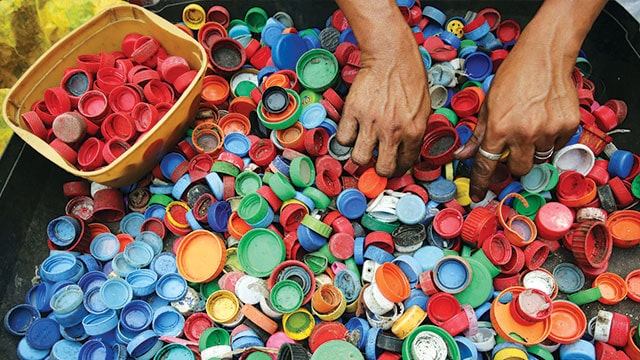The circular economy is an option to strengthen the economy without burdening the environment. In this perspective, waste has economic value through a series of management processes. Indonesia may have been implementing the same concept for a long time. It’s just that the process and shape are different from developed countries, especially in Europe.
Jakarta (Greeners) – Professor of the Faculty of Civil and Environmental Engineering, Institut Teknologi Bandung (ITB), Prof. Dr. Enri Damanhuri, explains that the circular economy in Europe started in the 1980s. In Indonesia, he continues, the circular economy had begun in the 1960s. According to him, there are differences in views regarding waste in Indonesia and European countries. In developed countries, all used goods are count as garbage. Meanwhile, in developing countries like Indonesia, these goods are not waste. Locals can see economic value in these goods.
“In developing countries (used goods) is not rubbish. They have economic value that can be useful. From this point of view, Indonesia has started a circular economy, but European countries do not want the principle,” says Prof. Damanhuri, to Greeners, Monday (12/7/2020).
The Role of the Informal Sector
Prof. Damanhuri adds that the spirit of a circular economy is also contained in Law number 18 of 2008 concerning Waste Management. Of the nine principles in the Law, three of them are related to this principle. The three principles are sustainability, benefits, and economic value.
He continues that the informal sector, such as scavengers and collectors, plays a role in applying the circular economy. However, according to him, the informal sector is profit-oriented. It may even be that the informal sector is not interested in the environment, even the circular economy.
“Their activity is to get profit for their life. Many of our friends in the informal sector do their job without paying attention to safety and health. They managed to process waste with makeshift technology. They buy valuables in the garbage that we throw into the environment,” he explains.
Waste Management Chain: Challenges of Indonesia’s Circular Economy
Furthermore, Prof. Damanhuri says the waste management chain was essential in the circular economy. Three components play a role so that waste does not interfere with health and the environment. The three parts are the waste bank, the informal sector, and the formal sector.
In Indonesia, especially regarding plastic waste, the waste management chain is still a problem. The reason being, the three components are still not synergic. On the other hand, the three components’ quantity is always centered on Java and Bali’s islands. This condition makes the waste management chain in Indonesia long, thus hampering the circular economy.
“So plastic outside Java and Bali for the process must go to Java. From an economic point of view, this is not profitable. The circular economy concept shortens the logistics chain for goods and the economy at the locations,” he adds.
Government Simultaneously Encourages The Circular Economy
Meanwhile, the Director of Waste Management at the Ministry of Environment and Forestry (KLHK), Novrizal Taher, mentions the circular economy as one of the approaches in solving the waste problem in Indonesia. Currently, the government continues to encourage the simultaneous application of this method. In terms of government service facilities, behavior in society, and increased demand and recycling technology capacity.
Also, Taher adds, his party did two important things to implement a circular economy:
The first is to ensure the capacity of a circular economic ecosystem. Taher emphasizes that all parties from upstream to downstream must support this concept.
The second is from the environmental sector. According to Taher, his party supports the circular economy by encouraging fiscal and standardization of recycled products. Thus, he continues, it can maintain the availability of raw materials.
“Our recycling industry, especially plastics and paper, we fully strive for the raw materials to be met from within the country,” he concludes.
Reporter: Muhammad Ma’rup
Editor: Ixora Devi




















































